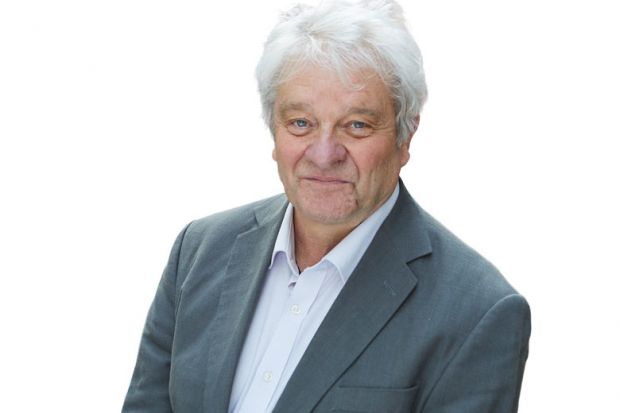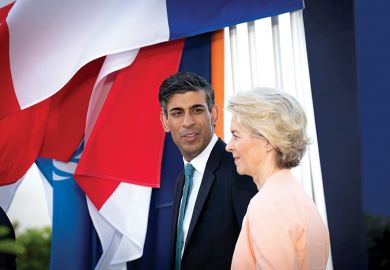The things that do and do not cut through at the ballot box are the subject of increasingly fevered debate as the run-in to the UK’s next general election looms.
Amid the fallout of the recent by-elections, one would be forgiven for thinking that the biggest issue facing the country was ultra-low emission zones – the expansion of which was blamed for Labour’s failure to win in Uxbridge.
That conclusion prompted political hand-wringing about the electoral risk of zero carbon commitments, although in truth the wobble was already under way – Labour leader Sir Keir Starmer is reported to have said that he “hates” tree huggers, such is his sensitivity to the way the smoggy wind is blowing.
All of which is both bizarre, as global heat records tumble, and useful context to a podcast discussion between Sir Paul Nurse, director of the Crick Institute and arguably the government’s go-to scientific grandee, and political insiders Alastair Campbell (Labour) and Rory Stewart (Conservative).
Nurse, who in addition to a Nobel prize has two landmark reviews of the research landscape to his name, reflected on various aspects of the UK’s attitude to science.
For someone so used to dealing with ministers, though, his tone changed to something approaching apoplexy when discussing the ongoing debacle of association, or otherwise, with Horizon Europe.
The sticking point is money. Jan Palmowski, secretary general of the Guild of European Research-Intensive Universities, explains the detail of the dispute in our opinion pages, but, for Nurse, the continuing delay on financial grounds is risible.
“There is too much obsession with the money,” he said on the Leading podcast. “The value of Horizon is actually the network, the collaboration, the fact you can pull on a population of 350 million to get the best initiatives going – that is the vision that is being lost in the negotiations.”
Nurse and 15 fellow Nobel laureates wrote to the prime minister, Rishi Sunak, urging him to get on with association following the breakthrough on the Northern Ireland protocol, but he said it took two months to get a reply.
“I don’t think Mr Sunak understood that [the important point wasn’t the money, but the irreplicable network] initially. I have heard he is getting around to that. But the point is that we spent 40 years building this, and it is getting destroyed every month,” he explained.
“Every time I recruit someone from anywhere in the world, the first question they ask is, ‘Are you going to rejoin Horizon?’ And I have to grin through it and say, ‘Yes, I think that we’re a sensible country and it is going to happen.’”
If Nurse is scathing about the obsession with “spreadsheets and accounting”, he remains an optimist, pointing out that science will provide the answers to many of the challenges ahead.
His assessment of the two parties’ positions is that while the Conservatives “say science is very important, but are very tardy on delivering what is needed”, Labour “doesn’t talk about it very much at all”.
Which brings us back to the point about the issues that cut through at the ballot box, and the reality that, for the time being at least, science does not have anything like the electoral clout that it should.
This is true not only because of the centrality it has in a world challenged by issues such as climate change and artificial intelligence, but because it is an enormous asset for the UK specifically.
Nurse suggests that this is the handle with which to seize the agenda and increase its prominence in political thinking: “I’d start with the vision of what science can deliver. It drives the economy; it improves productivity; it brings societal goods like improving the health of the nation, protecting the environment.
“All of this has its origins in science and needs science. So science should be central to all policy – and it isn’t.”
Getting on with association to Horizon, he argued, would be an opportunity to shift gear: “I think the best politicians do get [the importance of science], but the problem is they don’t think it’s a vote winner, and they have to rise above that.
“We do need money, but we need vision. And there is an open door: Horizon. It is already in the budget. And we are fiddling about while Rome is burning. And Rome is burning.”
POSTSCRIPT:
Print headline: Blinded by spreadsheets
Register to continue
Why register?
- Registration is free and only takes a moment
- Once registered, you can read 3 articles a month
- Sign up for our newsletter
Subscribe
Or subscribe for unlimited access to:
- Unlimited access to news, views, insights & reviews
- Digital editions
- Digital access to THE’s university and college rankings analysis
Already registered or a current subscriber? Login








